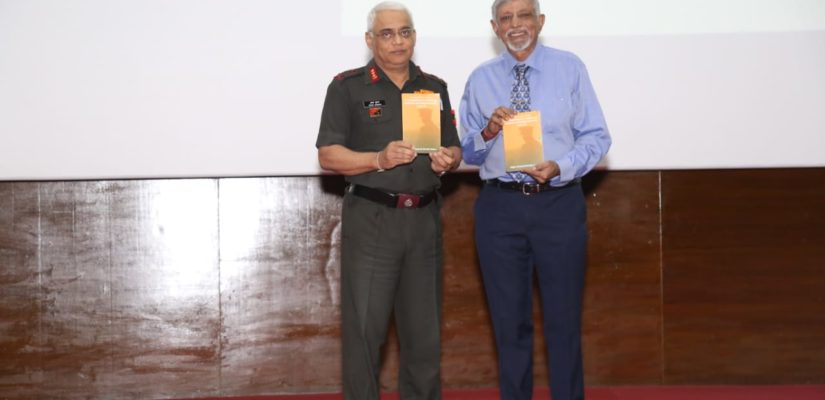
Making the NIA powerful (English version) Amar Ujala 18 Jul 19
https://www.amarujala.com/columns/opinion/why-politics-on-nia?src=top-lead
Making the NIA powerful (English version) Amar Ujala 18 Jul 19
The National Investigation Agency (NIA) was created after the Mumbai terror attacks, under the NIA act of 2008. Its main role initially was to investigate terror incidents in India, and it was designated as the central counter terrorism law enforcement agency. It was empowered to deal with terror related crimes across states without special permission from concerned states, including if they occurred in army cantonments. Its conviction rate is around 95% and this itself proves that the agency is effective.
In J and K, the NIA alongside the Enforcement Directorate (ED) worked in tandem to curb hawala transactions, which have been the main source of income for funding terrorist activities. Their combined result has led to making the Hurriyat ineffective, reducing funds for stone throwing and creating an environment free of bandhs and hartals. They were at the forefront in identifying stone throwers, which led to reduction in such incidents. Findings from terrorist strikes investigated by NIA has in cases lead to changes in operating procedures.
In the recent past, there have been reports of bomb and illegal arms manufacturing units emerging along the Bangladesh border. A few such units have also been busted. Their presence is a threat to both India and Bangladesh, especially as the Al Qaeda and ISIS seeks a foothold there. India cannot be the source of weapons for Bangladesh militants. These would subsequently begin manufacturing for India based terrorists.
Inputs of Sri Lanka type attacks within India have begun to flow to intelligence agencies. Indoctrinated nationals in India are on the rise. Information of funds flowing from NRI’s settled in the Gulf, who have become supporters of international terrorist groups, to plan and launch attacks within India are being regularly received. Reports of arrests in Tamil Nadu and Kerala in recent times point to this. Pakistan has begun rekindling the Khalistan movement. Though in its very nascent stage, unless monitored, it could become a stumbling block to development in the state. There is thus a need for a dedicated agency to handle these multiple issues linked to terrorism.
The nation is now facing a new nature of threat from across the borders. Hybrid warfare is the new form of warfare which India faces. This being multifaceted requires the involvement of a mix of agencies working in tandem. While the armed forces, along with the newly raised tri-service commands of cyber, space and special forces would handle the military aspects, there are other growing threats, which need equal importance. This is where the NIA comes in.
The bill passed by the Lok Sabha brings in new acts under the purview of the NIA. These include offences under the Atomic Energy Act, Anti-Hijacking Act and Unlawful Activities Prevention Act. These are all directly or indirectly linked to national security and would in some form be involved with terrorism. These new acts imply that the NIA would now be able to probe cases under multiple heads which together lead to terrorist strikes, which were earlier denied to it. It also grants power of police officers to NIA officers across the country, thus enabling them to arrest and detain suspects.
The inclusion of human trafficking remains the only mute question, as in many cases it is not linked to terrorism. However, the flip side is that such incidents involve interstate movements, which is easier for the NIA, rather than local police.
False currency was one of the major means of impacting the national economy and funding terrorism, which suffered a setback with the demonetization done by the previous government. It would again begin to flow into the country. Cyber terrorism has always been a threat and would only increase in the future. These emerging threats are mostly another form of terrorism which need to be handled by an agency which is already well established and has expertise in investigating terrorism cases.
The amendment also enables the central government to designate select sessions courts as special courts for the NIA.
The new bill also enables the NIA to investigate terror strikes on Indian establishments abroad. In Afghanistan, Indian consulates have faced multiple incidents but were dependent on investigation by the Afghan police. Now the NIA would be able to join the investigations, frame charges and work closely with other agencies to bring culprits to book.
Opposition political parties’ objections to the new bill stating that current amendments implied that it could be employed to target a particular religion, which the Home Minister himself dispelled. It should be remembered that while strengthening such agencies are beneficial, their misuse is always on the cards. There were always complaints of misuse of the NIA in cases filed against Pragya Thakur, Lt Col Purohit and Sudhakar Chaturvedi in the 2008 Malegaon Blasts case. The case remains sub-judicial at present.
In the overall context, the NIA, as the main agency handling terrorism in all its forms, must be strengthened. The bill has done just that. However, it simultaneously needs to be ensured that its powers are not misused to target communities and political opponents. The agency must remain professional and respected, rather than being made into a political tool.